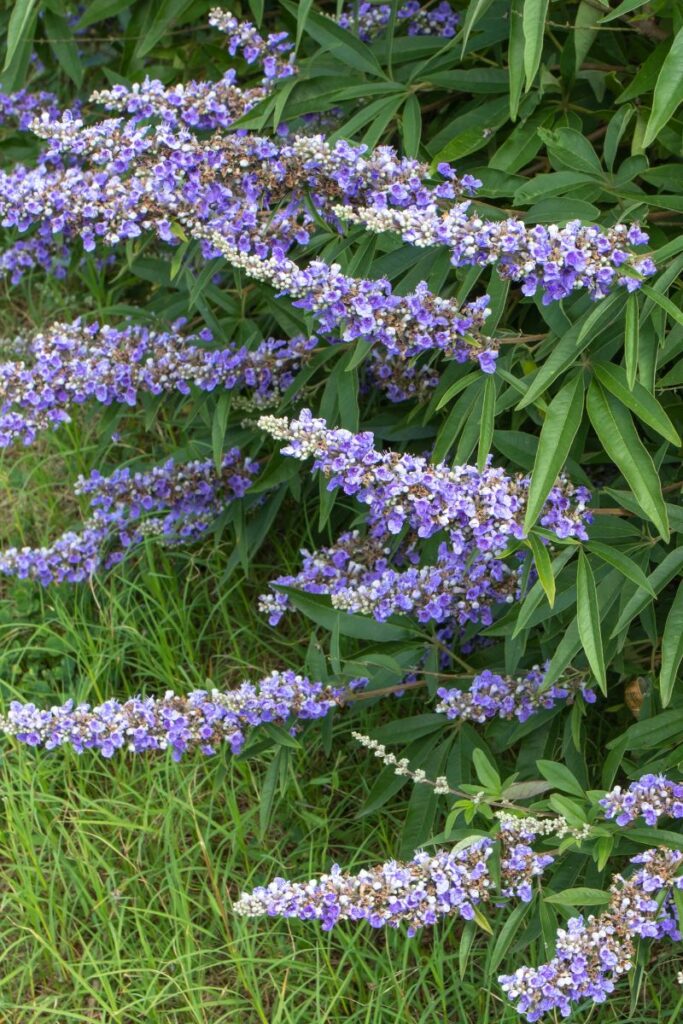How To Stop Facial Hair Growth Due To PCOS Naturally
In this article, I'll show you how to stop facial hair growth due to PCOS naturally. You'll learn about natural remedies and lifestyle changes that can help reduce excessive hair growth and improve your overall health.

Disclaimer: This is not medical advice. Information and statements shown here are for educational and informational purposes only and are not to replace the advice of your healthcare professional.
This post may include affiliate links. Please refer to our disclaimer for full disclosure.
Dealing with facial hair growth due to PCOS can be really tough. Many women struggle with unwanted facial hair, especially on the upper lip and chin, which can make them feel self-conscious.
Understanding PCOS and Facial Hair Growth
Understanding these basics about PCOS and how it affects hair growth can help in finding effective ways to manage and reduce unwanted facial hair.
What is PCOS?
Polycystic Ovary Syndrome (PCOS) is a common condition that affects women. It happens when there are problems with hormone levels. Women with PCOS might have irregular periods, weight gain, and even hair loss. One of the most noticeable symptoms is excessive facial hair growth, known as hirsutism.
How PCOS Leads to Facial Hair Growth (Hirsutism)
PCOS causes the adrenal glands and ovaries to produce too many androgens, which are male hormones. These high androgen levels can make hair follicles grow more hair. This hair is usually darker and thicker, especially on the upper lip, chin, and other parts of the body where women usually have fine hair, or vellus hairs.

Hormonal Imbalance
The main problem in PCOS is hormonal imbalance. The body makes too many androgens, leading to unwanted facial hair and other symptoms. This can also cause insulin resistance, which means the body has trouble using insulin properly. Insulin resistance can lead to higher blood sugar levels and more hormone problems.
The Role of Androgens
Androgens are hormones that both men and women have, but men have more of them. In women with PCOS, high androgen levels can cause body hair and facial hair to grow more than usual. These hormones can turn fine vellus hairs into thick, dark terminal hairs. They can also lead to other problems like acne and hair loss on the scalp.
Importance of Balancing Hormones to Reduce Symptoms
Balancing hormone levels is a key part of managing PCOS. When hormone levels are balanced, symptoms like unwanted facial hair growth can improve. This can be done through lifestyle changes, natural remedies, and sometimes medical treatments like birth control pills or other medications prescribed by a doctor. It's important to find the right treatment options to help reduce symptoms and improve overall health.
7 Natural Remedies to Reduce Facial Hair Growth
These natural remedies can be an effective way to manage and reduce facial hair growth due to PCOS. By incorporating these herbal teas and supplements into your daily routine, you may notice a reduction in unwanted hair.
1. Spearmint Tea
Benefits: Spearmint tea is known for its anti-androgen properties, which can help reduce excess hair growth. Androgens are male hormones that can cause extra hair growth in women with PCOS. Drinking spearmint tea twice a day may lower androgen levels, helping to manage this symptom.
Usage: Steep 1-2 teaspoons of dried spearmint leaves in hot water for 5-10 minutes. Drink twice daily.
Risks: Spearmint tea is generally safe but may cause stomach upset or lowered iron levels in some people. Pregnant or breastfeeding women should consult a doctor before use.

2. Saw Palmetto
Benefits: Saw palmetto is an herb often used to balance hormones and reduce androgen levels. It's available in supplement form and may help with hair growth issues by blocking the effects of male hormones.
Usage: Follow the dosage instructions on the supplement packaging, typically 500 mg twice daily.
Risks: Saw palmetto can cause mild side effects like stomach discomfort, headache, and dizziness. It may also interact with blood thinners and hormone-related medications. Always consult a healthcare professional before use.
3. Licorice Root
Benefits: Licorice root is known for its anti-androgen effects, helping to balance hormones. It can be consumed as tea or in supplement form. By reducing androgen production, it may help with the management of unwanted facial hair.
Usage: Steep 1 teaspoon of dried licorice root in hot water for 5-10 minutes. Drink once daily.
Risks: High doses or long-term use of licorice root can lead to serious side effects, such as high blood pressure, low potassium levels, and heart issues. It should be used with caution and under the guidance of a healthcare professional.
4. White Peony
Benefits: White peony is often used in Traditional Chinese Medicine to regulate hormones and reduce testosterone levels. Lower testosterone levels can help reduce hair growth issues associated with PCOS.
Usage: Steep 1 teaspoon of dried white peony in hot water for 10 minutes. Drink once daily.
Risks: White peony is generally safe but can cause stomach upset in some people. It may also interact with blood-thinning medications. Consult a healthcare provider before use.
5. Nettle Root
Benefits: Nettle root is believed to block the conversion of testosterone to DHT (dihydrotestosterone), a hormone linked to hair growth. By reducing DHT levels, nettle root may help manage unwanted hair growth.
Usage: Steep 1-2 teaspoons of dried nettle root in hot water for 10-15 minutes. Drink twice daily.
Risks: Nettle root is usually safe but can cause mild side effects such as stomach upset, fluid retention, or allergic reactions. People on blood pressure or diabetes medication should consult a doctor before use.
6. Vitex (Chaste Tree Berry)
Benefits: Vitex is used to balance female hormones and can be helpful in reducing symptoms of PCOS, including unwanted hair growth. It works by influencing the pituitary gland to balance hormone levels.
Usage: Follow the dosage instructions on the supplement packaging, typically 400-500 mg once daily.
Risks: Vitex can cause side effects like stomach upset, headache, and skin rashes. It may also interact with hormonal medications such as birth control pills. Consult a healthcare provider before use.

7. Green Tea
Benefits: Green tea is rich in antioxidants and can help lower androgen levels, reducing hair growth. Drinking green tea regularly can provide numerous health benefits, including helping to manage symptoms of PCOS.
Usage: Steep 1 teaspoon of green tea leaves in hot water for 2-3 minutes. Drink 2-3 times daily.
Risks: Green tea is generally safe but can cause side effects such as stomach upset and insomnia, especially when consumed in large quantities. People with caffeine sensitivity should limit their intake.
3 Lifestyle Changes to Manage PCOS Symptoms
1. Diet
Benefits: Eating a balanced diet rich in anti-inflammatory foods can help manage PCOS symptoms. A healthy diet can reduce insulin resistance, balance hormone levels, and support overall health. It can also help manage weight, which is important for PCOS women.

Tips:
- Include More Fruits and Vegetables: These are packed with vitamins, minerals, and antioxidants that help reduce inflammation and improve health.
- Lean Proteins: Foods like chicken, fish, and beans provide essential nutrients without excess fat.
- Whole Grains: Brown rice, whole wheat bread, and oats can help manage blood sugar levels.
- Healthy Fats: Include sources of healthy fats like avocados, nuts, and olive oil to support hormone balance.
2. Exercise
Benefits: Regular physical activity helps regulate hormones and manage weight. Exercise improves insulin sensitivity, reducing insulin resistance. It also helps lower high androgen levels, which can decrease unwanted body hair.
Tips:
- Aim for at Least 30 Minutes: Try to get at least 30 minutes of moderate exercise most days of the week. This can include walking, jogging, swimming, or cycling.
- Mix It Up: Combine cardio exercises with strength training to get the best results. Strength training helps build muscle, which can improve metabolism and hormone balance.
- Stay Consistent: Consistency is key. Find activities you enjoy so you can stick with them.

3. Stress Management
Benefits: Reducing stress can help balance hormones and improve overall health. Stress can increase cortisol levels, which may worsen PCOS symptoms. Managing stress can lead to better hormone balance and reduced symptoms like irregular periods and hair growth.
Tips:
- Practice Yoga: Yoga combines physical activity with relaxation techniques, making it great for stress management.
- Meditation: Spend a few minutes each day practicing meditation. This can help calm your mind and reduce stress.
- Deep-Breathing Exercises: Simple breathing exercises can help reduce stress quickly. Try inhaling deeply for a count of four, holding for four, and exhaling for four.
- Make Time for Hobbies: Engage in activities you enjoy, whether it's reading, drawing, or spending time with friends. Doing things you love can help lower stress levels.
By making these lifestyle changes, you can help manage the symptoms of PCOS naturally. A balanced diet, regular exercise, and effective stress management can improve your hormone levels and reduce unwanted symptoms like facial hair growth. Always consult with a healthcare professional to create a plan that's right for you.
Frequently Asked Questions
Can Natural Remedies Completely Stop Facial Hair Growth Due to PCOS?
Natural remedies can help reduce facial hair growth due to PCOS, but they might not completely stop it. PCOS, or polycystic ovarian syndrome, is a medical condition that causes hormonal imbalances. These imbalances often lead to excessive growth of dark hair on the face and body. Natural remedies like spearmint tea can lower androgen hormones and slow hair growth, but might not remove all unwanted hair. For complete removal, medical treatments like laser hair removal or depilatory creams might be necessary.
How Long Does It Take to See Results with Natural Treatments?
The time it takes to see results with natural treatments can vary. For some women, drinking cups of spearmint tea daily may show a reduction in hair growth in about 1-2 months. Consistency is key, and it’s important to follow the natural remedy routines regularly. Remember, natural treatments often work slower than medical treatments like laser therapy.
Can Lifestyle Changes Alone Manage PCOS Symptoms Effectively?
Lifestyle changes can significantly help manage PCOS symptoms, but they might not be enough on their own for everyone. Eating a balanced diet, exercising regularly, and managing stress are all effective ways to balance hormone levels and reduce symptoms like excess facial hair growth. Weight loss can also help improve insulin levels and reduce androgen production. It's best to work with a healthcare provider to create a comprehensive plan tailored to your needs.
Conclusion
Using natural remedies and making lifestyle changes can be effective ways to manage facial hair growth due to PCOS. Natural remedies like spearmint tea and vitex help lower androgen hormones and slow hair growth. Lifestyle changes such as a balanced diet, regular exercise, and stress management can balance hormone levels, reduce insulin resistance, and improve overall health. These methods are gentle on the skin and have fewer side effects compared to some medical treatments.
I encourage you to try these natural remedies and lifestyle changes to manage your PCOS symptoms and reduce unwanted facial hair. Remember to be patient and consistent, as natural treatments can take some time to show results. Share your experiences and successes with these methods, as your story could help others facing similar challenges.



